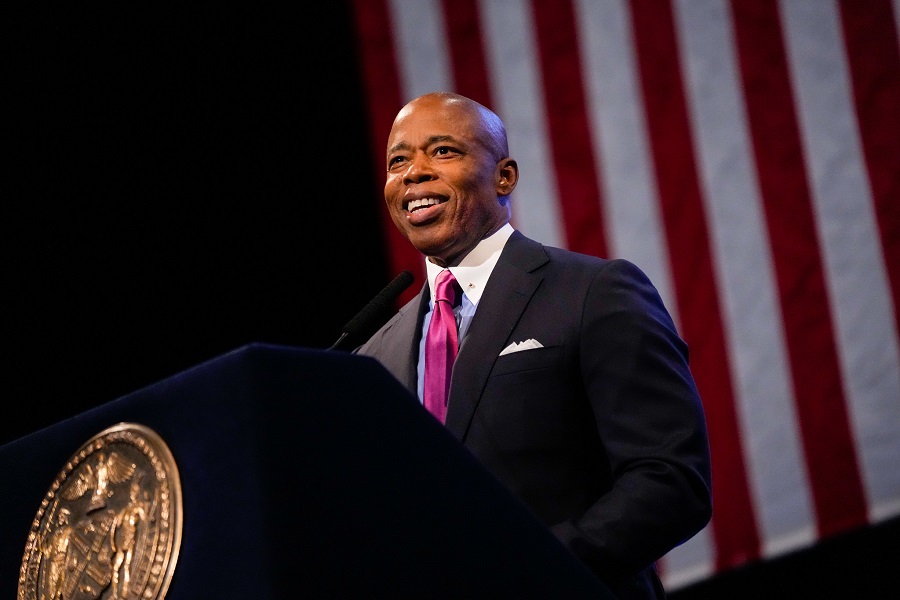 Sitting in his Harlem home, the pianist Vijay Iyer considered his new weekly commute to Cambridge, Mass. “I’m still not sure how this will work,” he said.
Sitting in his Harlem home, the pianist Vijay Iyer considered his new weekly commute to Cambridge, Mass. “I’m still not sure how this will work,” he said.
Yet his ideas were clear about “Creative Music: Critical Practice Studio,” the class he teaches as Harvard University’s inaugural Franklin D. and Florence Rosenblatt professor of the arts. Harvard’s catalog describes “an intensive, research-oriented workshop environment for advanced improviser-composers” meant to “engage with a range of contemporary musical perspectives and practices.”
That’s a good description of how Mr. Iyer, at 42, has earned so much acclaim, including a 2013 MacArthur Foundation fellowship, often called a “genius grant.”
The most popular distillation of his aesthetic is his jazz trio with bassist Stephan Crump and drummer Marcus Gilmore. But his music flows in multiple streams. His collaboration with the poet and rapper Mike Ladd yielded a trilogy of politically charged multimedia pieces, documented most recently in last year’s “Holding It Down: The Veterans’ Dreams Project.” He thrives on long-running associations, including those with fellow members in Fieldwork, a collective trio that is on the bill for a concert of John Zorn’s new “Masada” compositions March 19 at Town Hall.
Mr. Iyer has also worked in chamber-music settings for more than a decade, with a clear affinity for string quartets. “Mutations,” released Tuesday, highlights this interest.
“Mutations” expands upon a 10-movement piece for string quartet, piano and electronics that had its premiere in 2005—Mr. Iyer’s first work for string quartet. “I wanted to push myself out of my comfort zone,” he said.
There was also something comfortable about the challenge for Mr. Iyer, who began his musical studies on violin at age 3. “I gave up the violin in college and never developed a voice on it the way I have on piano,” he said. “Yet I still have the sound of a string quartet in my ear, as it feels from the inside.”
The first of three solo-piano tracks that frame his piece on the new album also mines Mr. Iyer’s past. It appeared in jazz-trio format on his debut album, 1995′s “Memorophilia.”
The other two, composed last year, offer his most sophisticated blends to date of electronic and acoustic sounds. Mr. Iyer intended the 10 central movements to “create a long form from a series of smaller experiences, so that it evolves unforced.”
He did so through integration of through-composed and improvised elements, some drawn from a “gesture palette” of musical phrases—an approach violinist Miranda Cuckson found “challenging, but exhilarating” while recording. Together, these sections both suggest and defy patterns of development. Throughout, however subtly, complex rhythms collide—one hallmark of all of Mr. Iyer’s music.
Now a tenured Ivy League professor, Mr. Iyer nearly turned his back on academia 20 years ago. While working toward a Ph.D. in physics, he grew disenchanted. “I was good enough at physics, but I didn’t think I loved it,” he said. “And here was this thing I did love—music.”
With musician and scholar George Lewis as adviser, he crafted an interdisciplinary academic path: cognitive science of music. Alongside saxophonist Steve Coleman—whose impact he called “hard to overstate”—and other mentors, he found a purposeful artistic voice.
Mr. Iyer places himself more within lineages than genres. “I’m here because of a series of generous African-American people who let me be here,” he said, particularly those connected to Chicago’s Association for the Advancement of Creative Musicians, who shared musical concepts and a larger sense of artistic ambition.
There’s another lineage into which he, the son of immigrants from India, was born. That influence, overt in some other projects, is finely ingrained even in sections of the new album. He seeks a perhaps radical yet logical unity of these heritages—his note to one trio album cites “the Brown and Black Atlantic.”
There’s nothing radical, however, in moving, as he did on his 2012 recording “Accelerando,” from the breezy melody of “Human Nature,” popularized by Michael Jackson, to the rhythmic challenges of Henry Threadgill’s “Little Pocket Size Demons.” Still, the continuity with which he does sounds rare.
Mr. Threadgill is among Mr. Iyer’s mentors. “Vijay knows musical traditions, but he’s no traditionalist,” he said. “He seeks out adventurous musicians, and he’s found ways to go forward. To me, that’s the object” (source).
Related articles

Become a Harlem Insider!
By submitting this form, you are consenting to receive marketing emails from: . You can revoke your consent to receive emails at any time by using the SafeUnsubscribe® link, found at the bottom of every email. Emails are serviced by Constant Contact






















